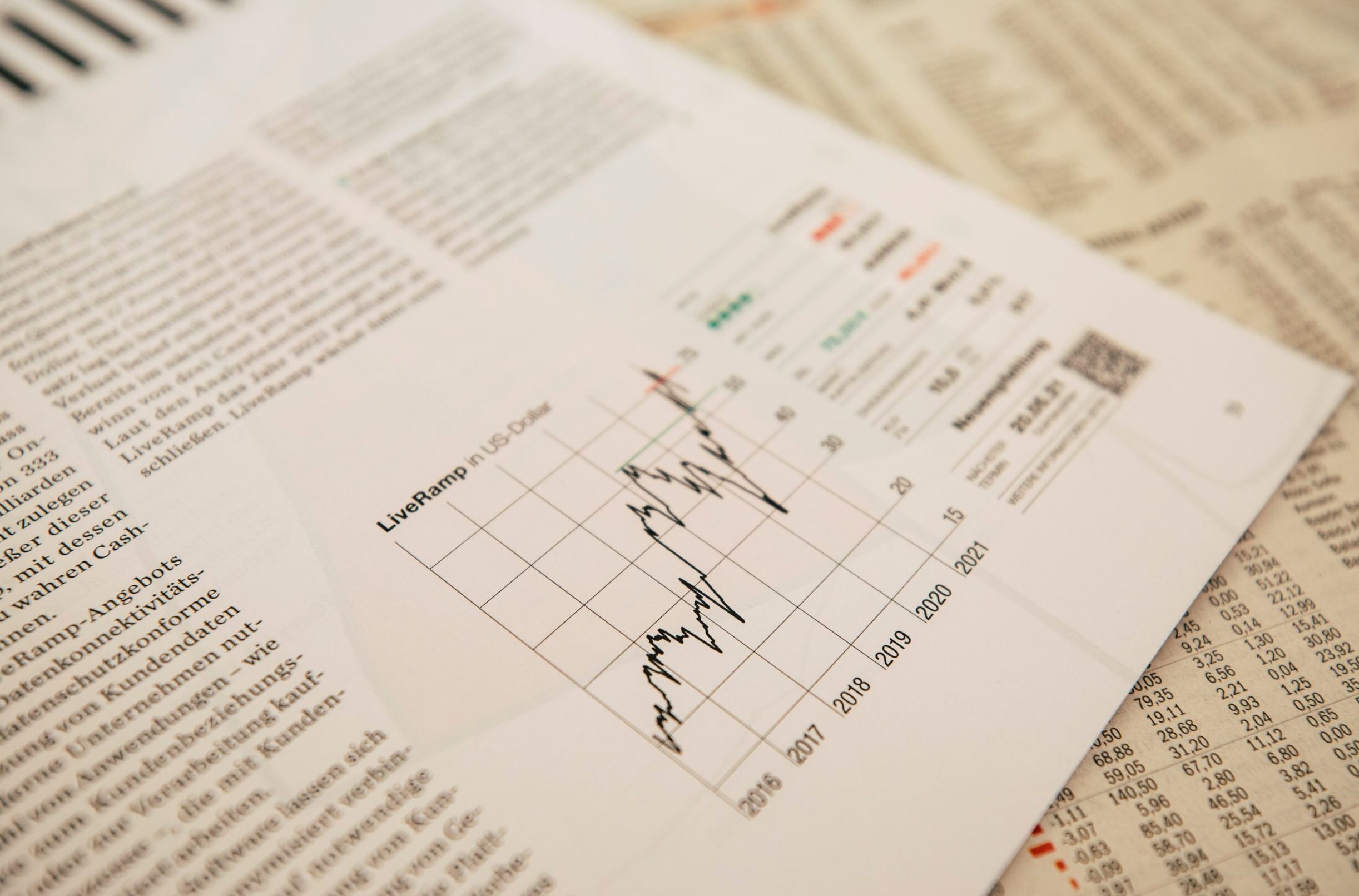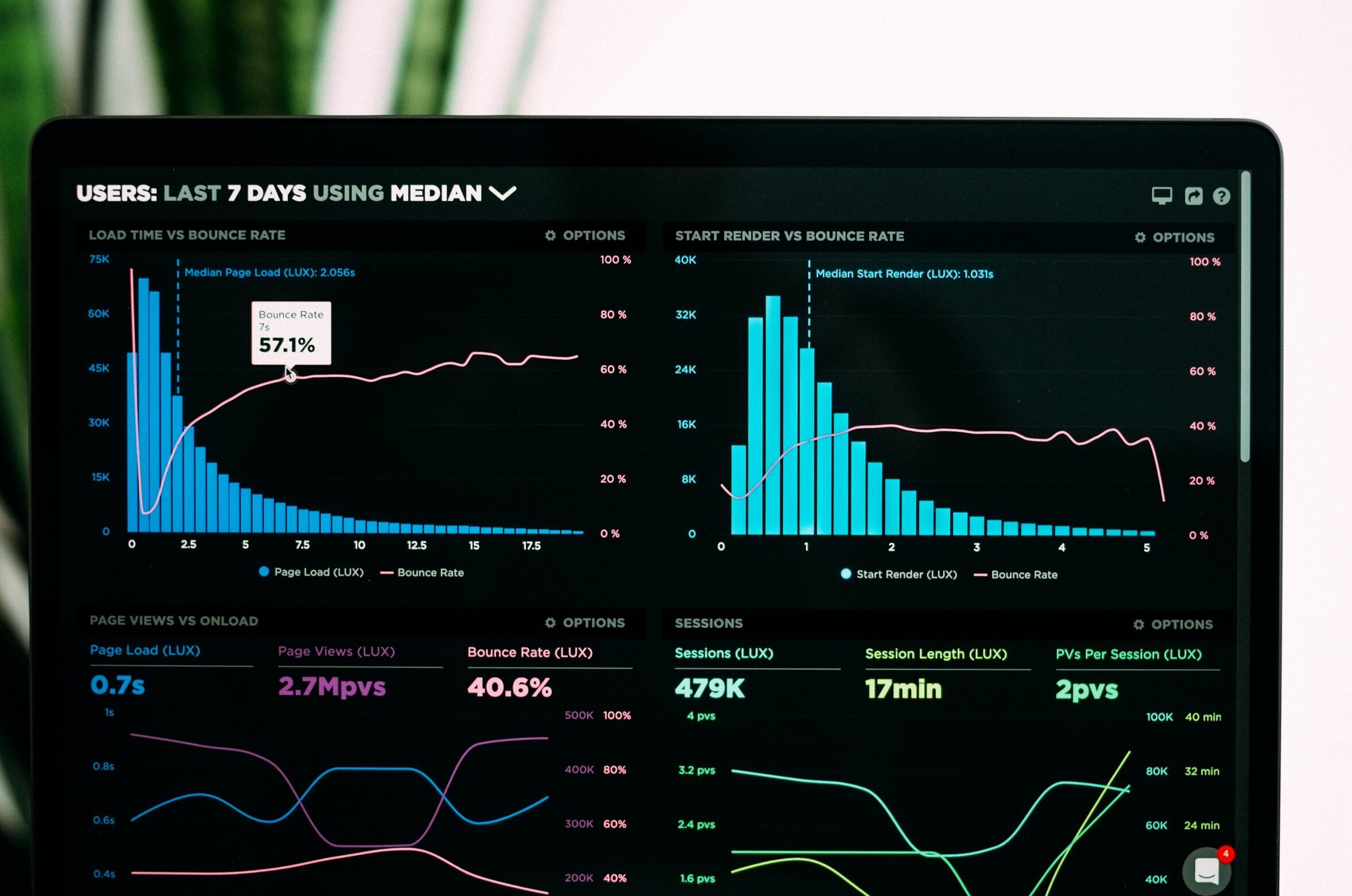Are you ready for some economic news? Brace yourself, because the International Monetary Fund (IMF) has just made a significant cut to its global economic growth forecast. Yes, you read that right! The IMF’s latest projections indicate a rather gloomy outlook for the world economy. So, what exactly led to this downward revision? In this blog post, we’ll explore the reasons behind this unexpected turn of events and discuss how it may impact our future. Get ready to dive into the world of economics – it’s about to get interesting!
The IMF’s New Forecast

In their latest report, the International Monetary Fund (IMF) has slashed its global economic growth forecast. The numbers don’t lie – the outlook is undeniably grim. This revision comes as a surprise to many economists and experts who were hoping for better news.
The IMF now predicts that global economic growth will contract by a staggering percentage. This downward adjustment reflects the severe impact of various factors on different regions of the world. It seems like no country or sector has been spared from this financial blow.
While some countries are experiencing a sharp decline in economic activity due to internal issues, others are grappling with external challenges such as trade tensions and political uncertainties. These diverse problems have created a perfect storm, leading to an overall reduction in global growth prospects.
As we examine these revised forecasts more closely, it becomes evident that no region will emerge unscathed from this downturn. Developed economies are expected to experience sluggish growth rates, while emerging markets face even greater challenges in maintaining stability and progress.
Now more than ever, policymakers need to step up their game and implement effective measures to stimulate economic recovery. Collaboration between nations is crucial as they navigate through these troubled waters together.
While there may be glimmers of hope on the horizon, it’s essential not to underestimate the magnitude of this setback. The road ahead may be bumpy and fraught with uncertainty, but one thing remains certain – adaptability and resilience will be key traits for businesses and individuals alike during these trying times.
Reasons for the Cut in Global Economic Growth

The International Monetary Fund (IMF) recently made headlines by cutting its global economic growth forecast. This adjustment has raised concerns and left many wondering what factors are behind this decision.
One of the main reasons for the cut in global economic growth is the impact of trade tensions between major economies. The ongoing trade disputes, particularly between the United States and China, have created uncertainty and disrupted supply chains. This has led to decreased investment and reduced business confidence worldwide.
Another contributing factor is slowing global demand. Several countries are experiencing weaker consumer spending, which can be attributed to various factors such as high levels of debt, political instability, or changing demographics. As a result, businesses are finding it challenging to sustain growth in these uncertain times.
Furthermore, geopolitical risks have also played a role in dampening economic prospects. Heightened tensions between nations have resulted in increased military expenditures and strained international relations. These developments can lead to reduced investments and hindered cross-border collaboration.
Additionally, there is growing concern about rising debt levels among both developed and emerging economies. Excessive borrowing can limit fiscal flexibility and increase vulnerability to financial crises if not managed effectively.
One cannot ignore the impact of natural disasters on global economic growth forecasts. Climate-related events like hurricanes or wildfires can cause significant damage to infrastructure, disrupt production processes, and hamper overall economic activity.
In conclusion, the IMF’s decision to cut its global economic growth forecast reflects a combination of several interconnected factors – trade tensions disrupting supply chains; weakened consumer spending due to various uncertainties; geopolitical risks affecting international cooperation; rising debt levels creating vulnerabilities; as well as natural disasters impacting infrastructure development.
It remains crucial for policymakers around the world to address these challenges effectively in order to promote sustainable economic growth moving forward
The Impact of the Coronavirus Pandemic
The coronavirus pandemic has had an unprecedented impact on the global economy. From disrupted supply chains to widespread job losses, no sector has been left untouched. One of the major consequences of the pandemic has been a sharp decline in consumer spending.
With people encouraged to stay home and avoid unnecessary outings, industries such as tourism, hospitality, and retail have suffered greatly. Local businesses have shuttered their doors permanently while larger corporations struggle to adapt to changing consumer behaviors.
Another significant effect of the pandemic is the increase in government debt. As countries implement stimulus packages to support struggling industries and provide financial relief for individuals, public finances are stretched thin. This will undoubtedly have long-term implications for national economies.
Additionally, stock markets around the world experienced extreme volatility as investors reacted to uncertainty surrounding the virus’s impact on business operations. While some sectors like technology saw gains due to increased reliance on digital services during lockdowns, others like oil and gas faced substantial declines.
Furthermore, globalization itself may undergo fundamental changes due to this crisis. The pandemic exposed vulnerabilities in global supply chains and highlighted a need for greater resilience and diversification.
In conclusion (sorry!), it is clear that COVID-19 has brought about significant economic challenges that will continue to shape our future. It remains uncertain how long it will take for economies worldwide to recover fully from this crisis or what lasting changes will emerge as a result. However, it is crucial that governments and businesses work together proactively to mitigate further disruptions and build more resilient systems moving forward.
What This Means for the Future
What does this downward revision in global economic growth mean for the future? It’s a question on many people’s minds as we navigate through uncertain times.
For starters, it indicates that we are facing significant challenges ahead. The IMF’s decision to cut its forecast suggests that the road to recovery will be longer and bumpier than previously anticipated. This means that businesses will have to brace themselves for a tougher economic climate, with potentially lower demand and reduced consumer spending.
Furthermore, governments around the world will need to reassess their policies and strategies in order to address these new projections. Fiscal stimulus packages may need to be extended or revised, while monetary policies might require further adjustments. In short, policymakers will have their work cut out for them as they strive to support their economies and facilitate a smooth recovery.
On an individual level, this forecast should serve as a reminder of the importance of financial preparedness and resilience. With the possibility of slower growth, job insecurity could increase, making it crucial for individuals to build emergency funds and explore alternative income streams.
In addition, industries heavily impacted by the pandemic such as travel and hospitality may need to adapt even further or consider diversification strategies in order to survive in this new reality.
What this means for the future is greater uncertainty and volatility. However, there is also an opportunity for innovation and adaptation. Businesses that can pivot quickly to meet changing demands may find success despite challenging conditions.
The key takeaway here is that flexibility will be crucial moving forward – both at an individual level and within businesses across various sectors. By staying informed about market trends and being open-minded towards new opportunities or business models, we can navigate through these turbulent times with resilience
The IMF’s recent cut in global economic growth forecast has highlighted the significant impact of the ongoing coronavirus pandemic on economies worldwide. With countries implementing strict measures to contain the virus, businesses have been severely affected, leading to a sharp decline in economic activity.
While there were already existing challenges and uncertainties prior to the outbreak, such as trade tensions and geopolitical risks, it is evident that COVID-19 has exacerbated these issues. The widespread disruptions caused by lockdowns, supply chain disruptions, reduced consumer spending, and weakened business confidence have all contributed to this downward revision in global growth projections.
As governments continue their efforts to combat the virus and mitigate its economic consequences, it remains crucial for policymakers to implement effective fiscal stimulus measures and provide support for struggling industries. Additionally, international cooperation will be vital in developing strategies for recovery and ensuring financial stability globally.
It is important for individuals and businesses alike to adapt quickly during these uncertain times. This may involve embracing digital transformation initiatives or exploring new opportunities arising from changing market dynamics. By staying resilient and flexible while also prioritizing public health concerns, we can work towards rebuilding our economies stronger than before.
Although the current outlook may seem challenging at present with a gloomy projection for global economic growth ahead of us due to various factors including the coronavirus pandemic – history has shown that economies are capable of rebounding even after severe setbacks. As we navigate through these difficult times together as a global community supporting one another economically – we need optimism balanced with realistic expectations about what lies ahead.
